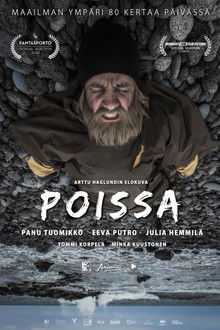Honing his craft as an indie filmmaker in Germany in the early 90s, Uwe Boll never could have imagined the life that lay before him. From working with Oscar-winning actors and making films with US$60million budgets to having actors publicly disparage him and online petitions demanding he stop making films, Boll continued to work; he has a filmography of 32 features, a career that has led to his new life as a successful high-end restauranteur. Already a cult legend, he will be remembered forever in the film world; for some, as a modern-day Ed Wood, who made films so bad, they're good, while for others, a prolific filmmaker who came from a small town in Germany and never compromised his integrity while forging his own unique Hollywood trajectory.
Related Movies
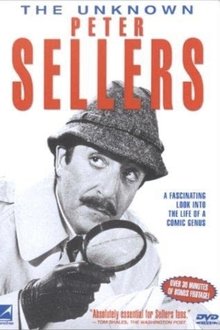
The Unknown Peter Sellers (2000)
Documentary about the life and career of a comic genius, Peter Sellers.

The Decline of Western Civilization (1981)
The Los Angeles punk music scene circa 1980 is the focus of this film. With Alice Bag Band, Black Flag, Catholic Discipline, Circle Jerks, Fear, Germs, and X.
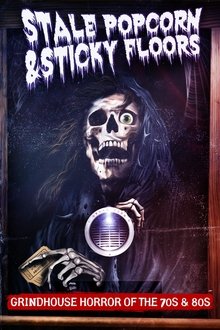
Stale Popcorn & Sticky Floors (2023)
Take a front row seat as we sit down to chat with some of the creators and stars of the best and most beloved exploitation and grindhouse films of the 1970s and 80s. Featuring interviews with John Dugan (The Texas Chainsaw Massacre), Craig Reed (The Re-Animator), John Russo (Night of the Living Dead), Lynn Lowry (The Crazies), Carl Crew (Blood Diner), and many more independent horror veterans.
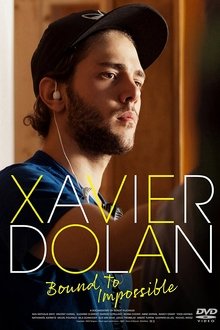
Xavier Dolan: Bound to Impossible (2016)
Actors Anne Dorval, Suzanne Clément, Monia Chokri, Gaspard Ulliel, Vincent Cassel, Niels Schneider and Melvil Poupaud discuss working with the young Canadian director Xavier Dolan, who has conquered the hearts of both cinema lovers and prestigious festival juries with his films. To French actress Nathalie Baye, he seems very experienced despite his young age, while Cannes Director Thierry Frémaux says he may be insolent, but everyone agrees he is passionate, creative, a perfectionist and... in a hurry.

Cole Porter in Hollywood: True Love (2003)
A short documentary about the making of the 1956 film, High Society. Hosted by Celeste Holm.
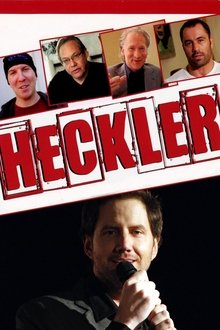
Heckler (2007)
HECKLER is a comedic feature documentary exploring the increasingly critical world we live in. After starring in a film that was critically bashed, Jamie Kennedy takes on hecklers and critics and ask some interesting questions of people such as George Lucas, Bill Maher, Mike Ditka, Rob Zombie, Howie Mandel and many more. This fast moving, hilarious documentary pulls no punches as you see an uncensored look at just how nasty and mean the fight is between those in the spotlight and those in the dark.

Cinéma! Cinéma! The French New Wave (1992)
An intimate window into one of the great movements in film history that brought about an evolution in the art of cinema. The documentary portrays the movement with insight on the lives and works of Jean-Luc Godard, François Truffaut and other principal players in the New Wave.

The Wandering Company (1984)
Documentary about Merchant Ivory Productions, including interviews with the principals of the film production company and actors which have appeared in their films.
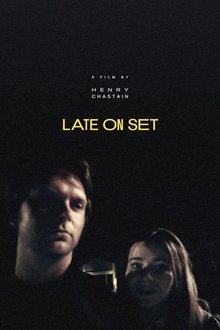
Late on Set (2023)
A coming-of-age documentary that follows a group of young filmmakers as they make their first feature film, Scuba.

Luchino Visconti (1999)
A chronological look at the creative life of Luchino Visconti (1906-1976). It examines his theatricality, role in the neorealist movement, use of melodrama, and relation to decadence. It touches on the impact of a fabulously wealthy childhood, his writing for "Cinema," his politics, his work with Renoir, his appreciation of Thomas Mann, and his deep knowledge of literature and the arts. Visconti moves constantly between film and the theater, staging plays provocatively, working with Maria Callas at La Scala, and shooting films in theaters. Clips from his films and interviews with actors, crew members, and critics provide details for this portrait of creativity.

The Five Obstructions (2003)
Lars von Trier challenges his mentor, filmmaker Jørgen Leth, to remake Leth’s 1967 short film The Perfect Human five times, each with a different set of bizarre and challenging rules.
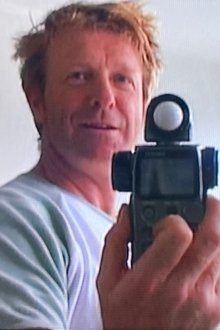
ADM: DOP (2003)
ADM:DOP (Anthony Dod Mantle - Director of Photography) is an impressionistic look into the creative life and vision of cinematographer Anthony Dod Mantle, the genius eye behind Harmony Korine's Julien Donkey-Boy, Lars von Trier's Dogville, Danny Boyle's 28 Days Later and Thomas Vinterberg's first two features, Festen and It's All About Love.

Negative history of Hungarian cinema (2010)
Reconstructions of unrealized Hungarian films in cooperation with the greatest Hungarian film directors.

Emulsional Rescue: Revealing 'The Godfather' (2008)
We hear from Coppola, Spielberg, director of photography Gordon Willis, consulting restoration cinematographer Allen Daviau, film archivist Robert A. Harris, Paramount Post Production executive VP Martin Cohen, MPI senior technical advisor Daniel Rosen, MPI scanning technician Chris Gillaspie, senior digital artist Steven A. Sanchez, digital artist Valerie V. McMahon, and MPI technical director and senior colorist Jan Yarbrough as they offer interesting facts about the original cinematography, details on the restoration of the three films.
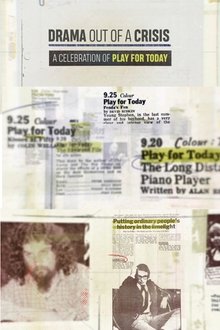
Drama Out of a Crisis: A Celebration of Play for Today (2020)
Marking Play for Today’s 50th anniversary, Drama Out of a Crisis is a compelling exploration of the series, its origins, achievements, controversies and legacies. Featuring a rich and surprising range of archive extracts and original interviews with many who created the series, including producers Kenith Trodd, Margaret Matheson and Richard Eyre, and directors Mike Leigh, David Hare and Ken Loach.
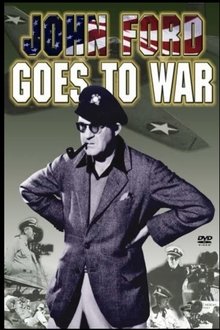
John Ford Goes to War (2002)
When World War II broke out, John Ford, in his forties, commissioned in the Naval Reserve, was put in charge of the Field Photographic Unit by Bill Donavan, director of the soon-to-be-OSS. During the war, Field Photo made at least 87 documentaries, many with Ford's signature attention to heroism and loss, and many from the point of view of the fighting soldier and sailor. Talking heads discuss Ford's life and personality, the ways that the war gave him fulfillment, and the ways that his war films embodied the same values and conflicts that his Hollywood films did. Among the films profiled are "Battle of Midway," "Torpedo Squadron," "Sexual Hygiene," and "December 7."
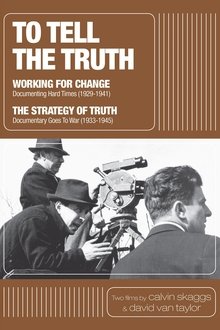
To Tell the Truth: A History of Documentary Film (1928-1946) (2012)
A detailed history of documentary filmmaking in the US and the UK from 1929 to 1945. The first part, Working for Change, focuses on 1929-1941 and the social movements of the times, The Great Depression, The New Deal, and the awakening of the Leftwing in the UK. The second part, The Strategy of Truth, focuses on 1933-1946 and explores the role of film as propaganda during World War II, and the different forms it took in the US, the UK, and Germany.
